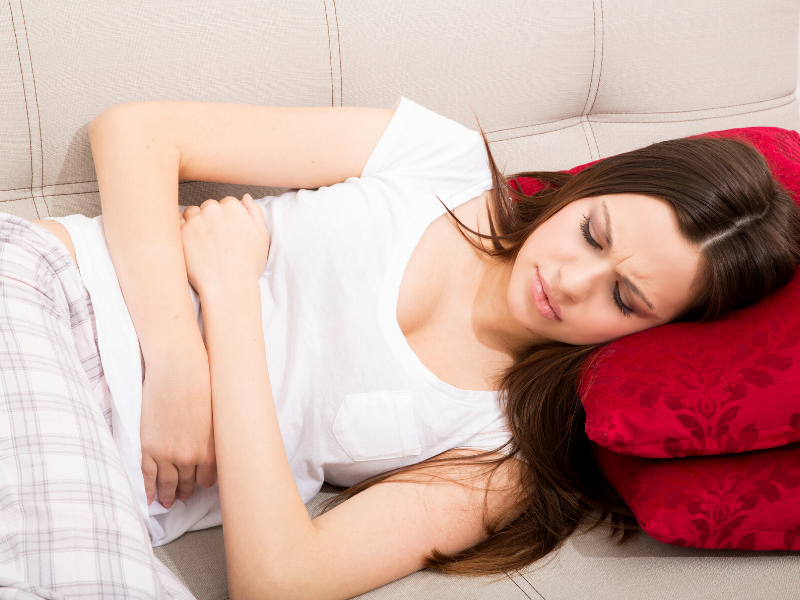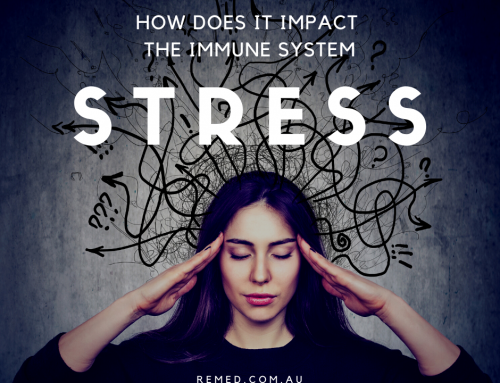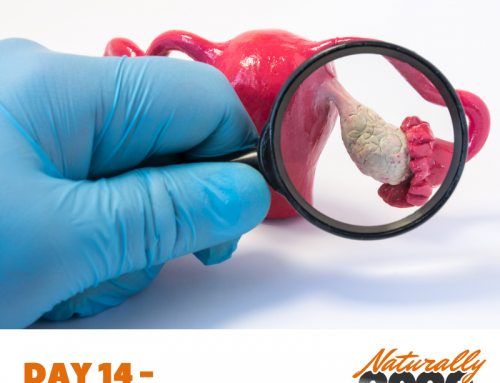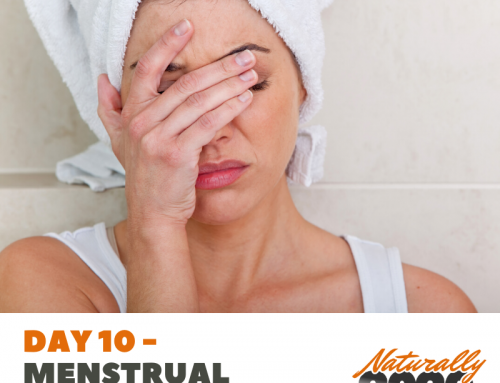Common – yes, normal – no. Many women suffer from pain before and during their period. The extent can range from some light cramping to being bedridden. Pain is a sign that your body is out of balance. The cause can range from nutrient deficiency (such as magnesium, iodine or something else), hormone imbalance, endometriosis, fibroids or even sexually transmitted infections.
The first step here is to see your GP, get some blood tests and possibly other testing such as an ultrasound. While any pathology is ruled out it’s a good time to seek further support to both address the cramping AND the underlying cause. Naturopathy is great for both these things. Your naturopath can work through your personal and family history and put this together with the test results from you GP to provide both symptomatic relief and ongoing support to alleviate the issues long term.
In the meantime, try yoga or other stretches that bring blood flow to your pelvis, belly dancing is also great for the same reason (and can help with mood – it’s a lot of fun!).
Period Myth: Heavy bleeding is something I can’t do anything about
Well, that’s not necessarily the case. Determining the cause of your heavy period is the first step. Before we dive into that, what is ‘heavy bleeding’. 80ml (about 16 teaspoons) of blood is what is discharged in a ‘normal’ period. If you use a menstrual cup it’s easy to measure if your period is heavier than this. If you’re using pads/tampons/period undies then here’s a general guide:
- 1 regular tampon or pad holds around 5ml of liquid.
- 1 super tampon or pad holds around 15ml of liquid.
Multiply the ml by the number of pads/tampons you use. If you are having to change your pad or tampon more than 90 minutes, you have to wear a tampon and a pad, or you feel like there is a gush of blood when you stand up, you need to seek support from an appropriately qualified medical practitioner.
Heavy bleeding is often a sign of something more going on – fibroids, endometriosis, hormone imbalance or something more sinister, and can lead to other health problems such as anaemia and fatigue.
Period Myth: Irregular timing sometimes just happens
Unless you’re on the pill and intentionally skipping periods (ie, skipping the sugar pills) or other hormonal birth control then you should expect to get your period every 28-30 days. A regular cycle is a sign that things are all in balance in your body.
Stress, thyroid conditions, polycystic ovaries, over exercising are all things that can cause an irregular cycle. Checking in with yourself – what is going on in your life, is there significant stress, checking in with your GP to check your thyroid and other hormones are important steps in determining the cause of an irregular period.
Don’t know whether your period is regular or not? Start tracking your cycle either by marking it on your calendar or using one of the many apps available such as Clue, Flo, Period Tracker etc. Most of these apps will also let you track the flow, and any other symptoms you might experience.
Period Myth: I sometimes bleed for over a week.
A “normal” period lasts for 4-5 days. If you are bleeding for longer than this (or shorter) then there’s something else going on. Stress, thyroid imbalance, nutrient imbalance, hormonal imbalance are all things that can cause excessively long periods. Identifying and understanding the cause of this is the key to success.
There are many herbs and nutrients that can help. Based on symptoms and blood tests (which can be ordered by your GP), naturopathic support can help your body get back on track. Herbs such as peony, rehmania, withania, eleutherococcus, licorice or shepherd’s purse might be prescribed to help your body rebalance itself. Please reach out if you experience heavy or excessively long periods so a treatment plan can be designed especially for you.
Constipation before/with periods
Changes in bowel motions (eg constipation or diarrhoea) before or with the onset of a period are reasonably commonplace. That said, they are not ‘normal’ changes and are a sign that your body, often your liver and hormone clearance processes, need some support.
If it’s constipation you’re experiencing then consider your fibre and water intake – increase your vegetable consumption for natural fibre, include seeds in your diet (sunflower seeds, flax seeds, pepitas etc) and ensure you are drinking at least 1.5-2 litres of water per day (more if you are exercising, breastfeeding or its hot).
Depending on what other symptoms you might have, food intolerances might also be considered – think about changes in your diet as the constipation occurs. Are you eating more sugar? Exercising less (or more)? Drinking more alcohol? All these things can affect your gut and be triggered by changing hormones or nutrient deficiencies and contribute to your poor health around your period.
Moodiness before periods
Before our period levels of oestrogen and progesterone drop to trigger the body to start bleeding – not pregnant = endometrial lining isn’t needed anymore. When these hormone levels drop too quickly or too much, we can experience changes in mood. If you have had a baby you might be familiar with the ‘day 3 blues’ – it’s much the same thing.
Eating a balanced diet with plenty of fresh vegetables helps, along with drinking plenty of water and herbal tea. Maintaining a regular exercise routine which includes active stretching can also help.
Spotting between periods
Some spotting can be normal, especially if you are starting a new type of birth control, are pregnant or are ovulating. Even then, it’s worth having checked out as it can also be a sign of tumour (benign or otherwise), sexually transmitted infection or pelvic inflammatory disease.
If you’re concerned at any time about your period you can be confident your healthcare practitioner will treat you seriously and investigate what’s going on.
Menstrual Migraines
I’m still surprised how many women experience regular headaches or migraines that have not previously been linked to their cycle. Headaches and migraines are not normal, and menstrual migraines may not respond to the ‘normal’ migraine medication prescribed by GP’s.
Often caused by changing hormones, naturopathic treatment involves understanding the specific symptoms, timing and history related to your cycle and headaches/migraines specifically. Also what works to make them better (or worse) can help identify the underlying cause and therefore best treatment approach.
Vaginal itching/recurring vaginal or urinary infection
Your vagina, like your gut, has it’s own microbiome. That is, it has a balance of bacteria living in and around that keeps your vagina healthy. When this microbiome is out of balance, we are run down or our immune health is not up to scratch itching, thrush, urinary tract infections etc can all occur. These are ‘opportunistic’ illnesses that can really take their toll on your overall health and wellbeing. Especially if they keep happening.
Some women find they get thrush just before their period most months. This is a sign that there is an imbalance, triggered by the natural drop in oestrogen, that their immune system is not able to overcome. Rebalancing the microbiome, modulating oestrogen levels and supporting the immune system are key factors in overcoming this for the long term.







Leave A Comment